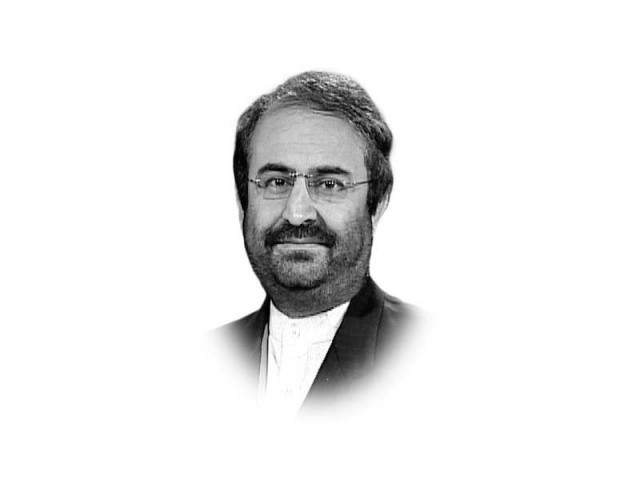Foregoing preconditions at the negotiating table
Recognition of Taliban’s Qatar office by Afghan and US govts could convince the group to come to the dialogue table

The writer is a reporter at The Express Tribune
The Taliban took to their online media to share their thoughts about the January 11 talks, stating that “meetings had also been held in the past. Kabul’s puppet officials could hold more meetings on the orders of the Americans, but such meetings have neither found any way in the past nor will Afghans accept their unreasonable recommendations”. The Pashto-language commentary on Alemra1.org has also condemned what it termed were threats by an Afghan official who said the “Taliban will either have to come to the negotiation table or they will be crushed”. The Taliban also referred to a recent statement by President Ashraf Ghani, in which he had attached conditions to the talks. “Such kind of remarks and threats to the Taliban would be seen as a stupid and childish step that will never be considered logical,” stated the commentary.
This approach by the Taliban highlights the trickiness of the situation. Unnecessary statements and conditions would not be helpful at this stage. Pakistan’s adviser on Foreign Affairs, Sartaj Aziz, had rightly pointed out in his speech at the Islamabad meeting that pre-conditions should not be attached to the negotiation process. Instead, there is a need for confidence-building measures (CBM) by both the US and Afghan governments that can play a key role in encouraging Taliban groups to join the negotiation process. A major CBM could be the recognition of the Taliban office in Qatar that has been authorised in the past by the group’s leadership to carry forward the political process. Taliban negotiators are still based in the oil-rich Gulf state, but they have boycotted negotiations ever since former president Hamid Karzai raised objections over the raising of the Taliban flag and the use of the insignia of the “Islamic Emirate” at the Qatar office. It had been Kabul’s demand that the Taliban should have a proper address. They have such an address in Qatar and the office’s reopening should be facilitated. Approaching the Taliban through any other source could create misunderstandings. The Afghan government should ignore minor issues like the use of the Taliban flag at the Qatar office. At the same time, the Taliban should also give up their stubborn behaviour if they are interested in facilitating the political option.
Removal of Taliban leaders’ names from the UN sanctions list could be another CBM that can convince the group’s leadership to opt for political negotiations. As the US and China are active members of the Afghan peace process, they could help in easing the travel curbs on Taliban leaders. Russia has reportedly increased contacts with the Taliban in view of the emerging threats from the Islamic State, so in all probability, it will not block any move to lift these sanctions. China’s active role in the quadrilateral process can prove to be more effective than any other country’s because of its impartial stance on Afghanistan. The Taliban have officially confirmed their contacts with China as part of their interaction with other countries. One of the group’s leaders has even said that a meeting between the Chinese and the Taliban is expected shortly. With the next round of the quadrilateral meeting set to begin today, all participants of the process need to keep paramount the need for peace and stability in Afghanistan. Only then will this process have any chance of success.
Published in The Express Tribune, January 18th, 2016.
Like Opinion & Editorial on Facebook, follow @ETOpEd on Twitter to receive all updates on all our daily pieces.
















COMMENTS
Comments are moderated and generally will be posted if they are on-topic and not abusive.
For more information, please see our Comments FAQ